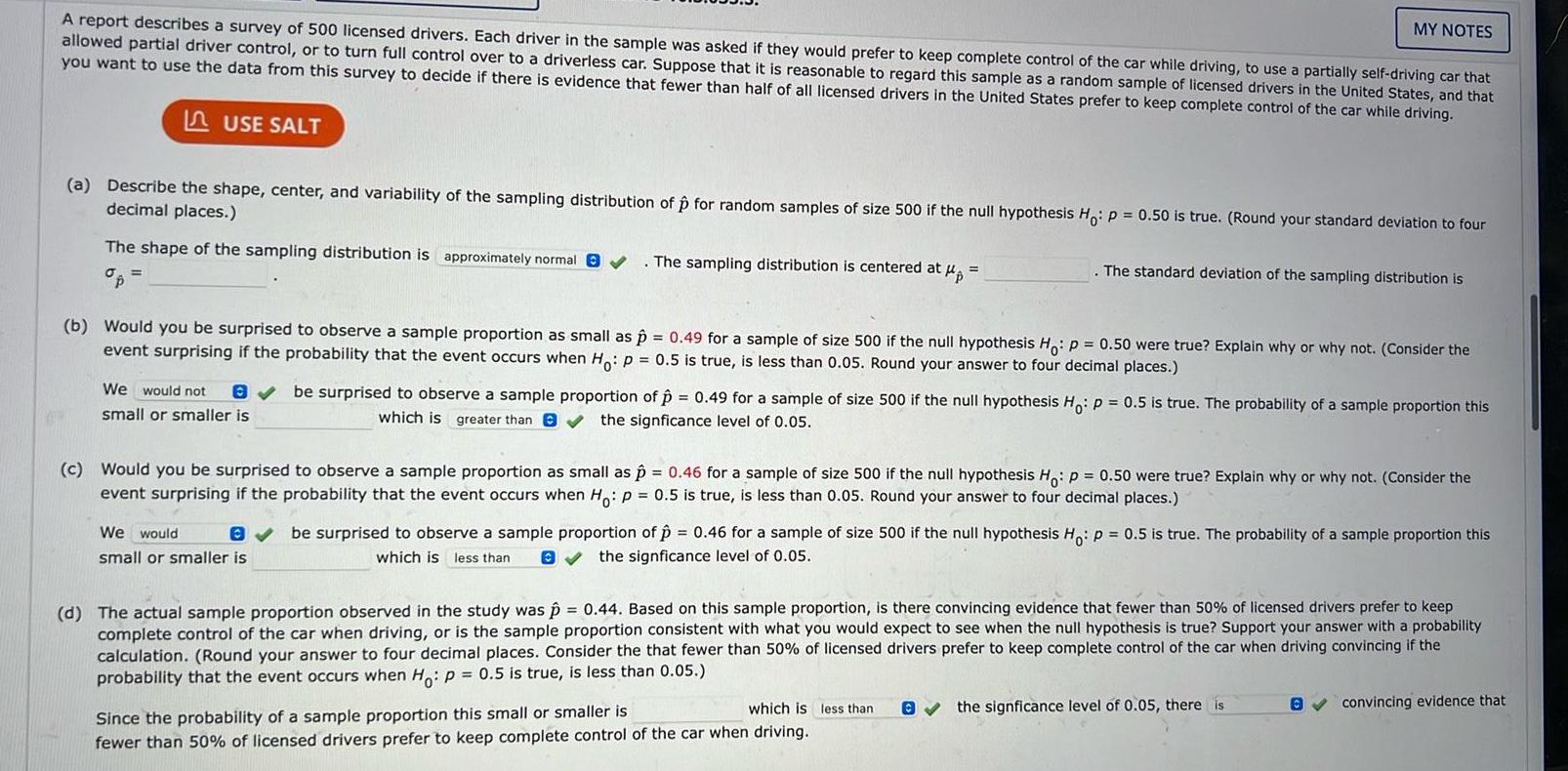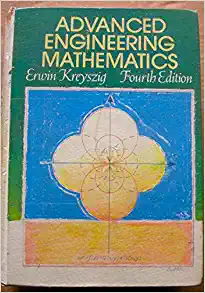Answered step by step
Verified Expert Solution
Question
1 Approved Answer
MY NOTES A report describes a survey of 500 licensed drivers. Each driver in the sample was asked if they would prefer to keep

MY NOTES A report describes a survey of 500 licensed drivers. Each driver in the sample was asked if they would prefer to keep complete control of the car while driving, to use a partially self-driving car that allowed partial driver control, or to turn full control over to a driverless car. Suppose that it is reasonable to regard this sample as a random sample of licensed drivers in the United States, and that you want to use the data from this survey to decide if there is evidence that fewer than half of all licensed drivers in the United States prefer to keep complete control of the car while driving. USE SALT (a) Describe the shape, center, and variability of the sampling distribution of p for random samples of size 500 if the null hypothesis Ho: p = 0.50 is true. (Round your standard deviation to four decimal places.) The shape of the sampling distribution is approximately normal The sampling distribution is centered at = Op . The standard deviation of the sampling distribution is (b) Would you be surprised to observe a sample proportion as small as p = 0.49 for a sample of size 500 if the null hypothesis Ho: p = 0.50 were true? Explain why or why not. (Consider the event surprising if the probability that the event occurs when Ho: p = 0.5 is true, is less than 0.05. Round your answer to four decimal places.) We would not small or smaller is be surprised to observe a sample proportion of p = 0.49 for a sample of size 500 if the null hypothesis Ho: p = 0.5 is true. The probability of a sample proportion this which is greater than the signficance level of 0.05. (c) Would you be surprised to observe a sample proportion as small as p = 0.46 for a sample of size 500 if the null hypothesis Ho: p = 0.50 were true? Explain why or why not. (Consider the event surprising if the probability that the event occurs when Ho: p = 0.5 is true, is less than 0.05. Round your answer to four decimal places.) We would small or smaller is be surprised to observe a sample proportion of p = 0.46 for a sample of size 500 if the null hypothesis Ho: p = 0.5 is true. The probability of a sample proportion this which is less than the signficance level of 0.05. (d) The actual sample proportion observed in the study was p=0.44. Based on this sample proportion, is there convincing evidence that fewer than 50% of licensed drivers prefer to keep complete control of the car when driving, or is the sample proportion consistent with what you would expect to see when the null hypothesis is true? Support your answer with a probability calculation. (Round your answer to four decimal places. Consider the that fewer than 50% of licensed drivers prefer to keep complete control of the car when driving convincing if the probability that the event occurs when Ho: p = 0.5 is true, is less than 0.05.) Since the probability of a sample proportion this small or smaller is which is less than the signficance level of 0.05, there is 6 convincing evidence that fewer than 50% of licensed drivers prefer to keep complete control of the car when driving.
Step by Step Solution
There are 3 Steps involved in it
Step: 1

Get Instant Access to Expert-Tailored Solutions
See step-by-step solutions with expert insights and AI powered tools for academic success
Step: 2

Step: 3

Ace Your Homework with AI
Get the answers you need in no time with our AI-driven, step-by-step assistance
Get Started


